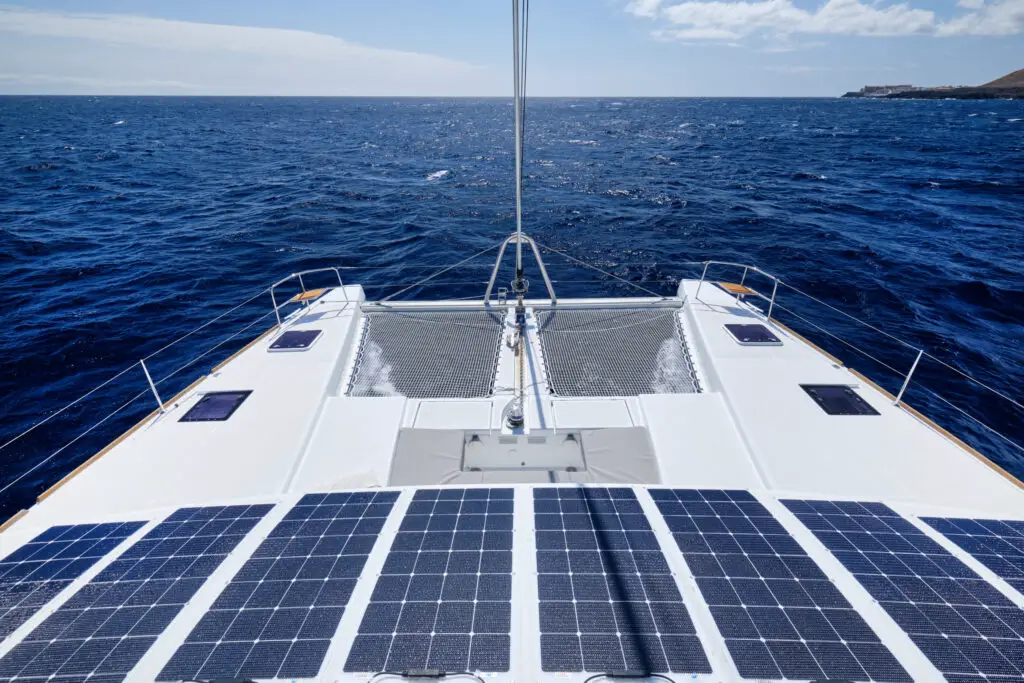The world is constantly on the move, and with it, all the modern (and even not so modern) inventions and gadgets of our day and age. Hence, the ever more common electric boats are steadily growing in popularity. These are great vessels that will serve you well (whether you’re a fisherman or just a sailor), but the question is, how much are electric boats these days, and is that price worth it?
A fully electric boat typically costs anywhere from $73,000 to $500,000, depending on the model. Because electric boats are an emerging and developing technology, they tend to be more expensive than their gas-powered counterparts. This is often because of the high cost of batteries.
So, if electric boats cost this much, they must indeed have great (many) benefits to offer to their owners. If you have been considering getting an electric boat, you have undoubtedly come to the right place for answers to your questions.
Read on to learn some details about electric boats, including pros and cons, prices, and more, all of which will hopefully help you to decide whether an electric boat would be a worthwhile investment for you or not.

Electric Boats: Cost, Pros And Cons, And More
As mentioned above, electric boats are costly vessels because they are a recent commodity that the public has been enjoying. The most expensive electric boats can reach prices as high as $500,000, but others may not be quite as pricey. Here are a few examples:
| Boat | Price |
| Eelex 8,000 | $329,000 |
| Alfastreet 38 | $201,150 |
| Hinckley Dasher | $500,000 |
| Boesch 750 Portofino Deluxe | $450,576 |
| Frauscher 740 Mirage | $290,482 |
| Marian M800 | $319,908 |
| Greenline NEO | $250,000 |
| Candela C-7 | $355,518 |
Though they are expensive, but these boats have been engineered with expert hands and built with only the finest materials. Again, electric boats are a recent commodity to make their way into the boating market, so they will probably continue to come at extremely high prices until they become regular.
An important thing to keep in mind is that the initial cost of the boat itself is not the only cost you’re going to have to account for. For example, electric and combustion motors are fairly similar in price, but their lithium batteries and propulsion systems really make electric boats that much more expensive.
You could very well be paying over $40,000 for a good set of batteries and an electric propulsion system. That is at least twice more money than you would usually have to pay for a good old (used) gas or diesel engine.
However, it is also possible that you could be saving a lot of money on fuel in the long run. Therefore, it would be beneficial to weigh out the cost of fuel against the cost of electricity to decide if the upfront cost of batteries is worth it.

Before you completely toss the idea of getting an electric boat, however, you should know that there are both pros and cons to owning one, regardless of how expensive they may be right now. They are not perfect, of course, and will have plenty of flaws, but there are also good things that can come from purchasing one. Here are a few that you should know.
Pros
- One of an electric boat’s most glorifying/redeeming qualities is its stealth. Having electric propulsion could very well be considered to be a fisherman’s dream because it makes little to no noise. If you have an electric propulsion system, you can sneak up on fish with pretty much no problem at all. So, if fishing is your sport, you will do well to invest in an electric boat.
- Electric boats tend to be very lightweight compared to gasoline boats. Why is this important? Sometimes there’s nothing nicer than effortlessly cutting through the water on a windy day. With no extra clunky gear or parts, an electric boat will speed along the surface of any lake or ocean with perfect ease and agility. So if you’ve got a need for speed, electricity is the way to go.
- Electric boats are also environmentally friendly. Because they don’t run on gasoline or any other fluids/fuels, there is absolutely no risk of oil or gas spills, and the boat won’t emit any harmful fumes either. Plus, on top of that, there will be no exhaust fumes to have to deal with, and you can rest assured knowing there’s absolutely no risk of carbon monoxide poisoning.
- If nothing else, electric boats are often ten times easier to maintain than gasoline boats. There are far fewer parts that could have issues one day and fail. There’s no fuel filter to worry about, no carburetors to clean, and no propellers to repair. Maintenance for an electric boat simply means keeping it clean and the batteries charged.
- You will never have to worry about winterizing an electric boat because it doesn’t take any time at all to warm up or anything like that. The motor will be ready to go the moment you step foot on the boat, no matter how cold it is. Of course, this system isn’t problem-proof, but it is more reliable in this area than gasoline motors are.
Cons
Unfortunately, there are also some cons to owning an electric boat.
- One such con is the difficulty in repairing. Yes, maintenance is generally much easier for electric boats due to their lack of moving parts. However, this also means that when something goes wrong, it is ten times more difficult to know exactly what has gone wrong and what you need to do to fix it.
- On top of that, if and when you ever do need to replace a part on your electric boat, good luck finding one! Electric/battery technology is new and innovative, but that uniqueness makes it extremely difficult to find parts online or anywhere. Maintenance is easy on an electric boat, but repairs are not.
- Batteries are effective but still not nearly as powerful as gas-powered engines. While you could bring a gas can with you and go all day on a gasoline boat; eventually, you’d need to bring your electric boat home so the batteries can charge. It won’t take you as far, and you won’t be able to sail as long as you would with a good old combustion engine.

However, since gas-powered boats are mostly meant for the ocean (where the water is choppier and stronger), electric boats could easily be taken out to a lake where you might be provided with enough hours of fun to be satisfied. If this is the case, the batteries might be less of a problem.
You can read more about the pros and cons of electric boats here!
Gasoline Boats: Cost, Pros And Cons, And More
Now that we have discussed electric boats and all of their virtues, it might not be a bad idea to talk about gas-powered boats. Gasoline has been powering boats for years and years and years, and until now, the population has been happy without an alternative. They might be heavier and bigger, but gas-powered boats are still working as well as ever.
Gas (or diesel) boats can be ten times cheaper than electric boats any day, whether you’re choosing to invest in a deck boat, cruiser, or pontoon. Many types will cost as little as $25,000 and anywhere up (or down) from there. Prices can vary greatly depending on the type of boat you choose to get. Here are a few examples:
| Boat Type | Brand/Model | Price |
| Pontoon | Manitou LX | $63,000+ |
| Cabin Cruiser | Monterey 305SS | $200,000+ |
| Deck Boat | Stingray 206CC | $54,000+ |
| Bowrider | Chaparral 267SSX | $144,000+ |
| Motor Yacht/Power Cruiser | Prestige 520 | $970,000+ |
| Sailboat | Island Packet Blue Jacket 40 | $419,000+ |
| Trawler | Cutwater C-24 CW | $125,000+ |
| Ski Boat | Ski Supreme S240 | $240,000+ |
The obvious exception to the “gas is cheaper” rule is the motor yacht/power cruiser. Most fancy yachts nowadays are going to cost closer to millions instead of mere hundreds of thousands of dollars. However, most of these gas-powered boats are either as much as electric boats or cost even less. In some places, you could probably even find boats for as little as $25,000 or less.
The only thing to take into account is how expensive gas boats can be in the long run. With electric boats, you’re paying a lot of money upfront, but they are likely to cost you far less money in the long run. With gas-powered boats, you’re paying possibly less upfront, but you’ll still have to spend a lot of money on fuel for the duration of your ownership.
With fuel prices skyrocketing the way they are, you could very well end up spending $300 or more on fuel for every single outing. That’s a lot of dollars! Plus, you need to take into account the cost of mooring and the purchase of a boat trailer if necessary. So things are going to get expensive pretty quickly.
All that aside, however, there are still some good things about buying a gas-powered boat. Like electric boats, gas boats are not perfect, but they still have much to offer. Here are some basic pros and cons of buying a gasoline-powered boat that you should know before investing!

Pros
- First of all, we should mention pricing. Gas boats match electric boats in a few categories, but they take the cake as far as cost is concerned. Yes, fuel can get pricey, but if you’re after a boat that is inexpensive and effective, you’ll want to purchase one that runs on gas. If you’re looking for extra cheap, you can buy one used as well. Just make sure to use good judgment when boat shopping!
- In many ways, gas engines are far more reliable than electric ones. You don’t ever have to worry about losing power or your batteries dying unless you neglect the boat maintenance. Fuel will run out, yes, but you can always carry extra fuel, making it easier to relax about boating. Plus, gas engines are capable of staying out longer and going further than electric ones.
- Gas boats tend to be quite a bit more powerful than electric ones. Electric boats are lightweight and will cut through the water with no problem, but if you’re ever on a fishing trip on a rough sea, you’re likely to feel much safer in a gas-powered vessel. Some engines can be as strong as 600 HP or more. So if you’re one to tackle dangerous voyages, then a gas boat is probably the better choice.
- The electric boat is, as stated above, a newer addition to the market and therefore has not yet had the chance to prove its mettle truly. The gas-powered boat, however, has been around for years and years and has an unbeatable track record. Gas boats have proven themselves reliable and safe to use and will likely be popular for eternity.
- Because gas boats are a common commodity, finding parts is a cinch. Electric boats are new and unique, and when you have to repair a part, you’ll be forced to go on an expedition just to find the parts you need. Gas boats have been around a long time, and you won’t have any kind of trouble finding parts when your vessel requires repair.
Cons
- Sadly, gas engines aren’t perfect, and they have their fair share of flaws to go around. As mentioned earlier, gas is a big kicker for a lot of boat owners.
- Gas is expensive enough as it is, and with prices skyrocketing the way they have been lately, that price tag is only going to get heavier and heavier. You may be better off with the one-time purchase of some lithium batteries.
- It might be easy to find the parts for repair and even perform the repair itself. However, because there are so many components that make up a gas-powered boat, you are going to have to keep up that maintenance constantly and religiously.
- If you don’t stay on top of maintaining your boat and keeping it clean, you’re going to end up with a tired, rusty tin can of a boat on your hands.
Bottom Line
The bottom line is electric boats are expensive, but it is also possible that you could be saving a lot of money on fuel in the long run. Therefore, it would be beneficial to weigh out the cost of fuel against the cost of electricity to decide if the upfront cost of batteries is worth it.
Apart from the “expensive” term, electric boats don’t need much maintenance compared to gas ones. Since there are far fewer parts and there’s no fuel filter to worry about, no carburetors to clean, and no propellers to repair. Maintenance for an electric boat simply means keeping it clean and the batteries charged.
